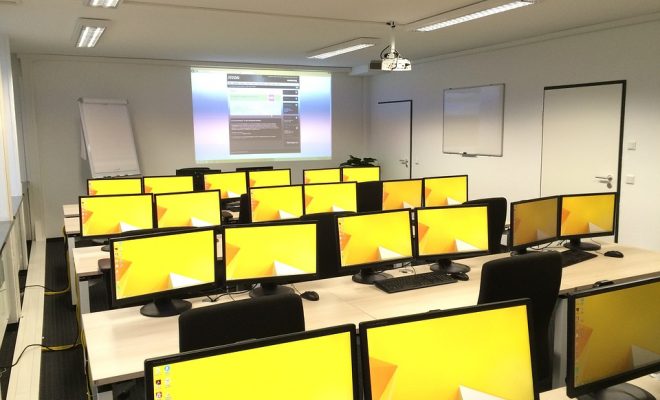Understanding the Impact of Educational Governance at the Local Level: The Local School Board

On the local level, educational governance is organized into four levels including the local school board, the superintendent, the local school district, and the principle. This article highlights the details of the local school board.
The local school board is charged with interpreting state regulations and setting similar policies for its district while creating strategic plans for the advancement of education in its district. The local school board represents the state in educational matters as well as advocates for the concerns and rights of the local citizenry. Although the local school board is bound to implement state educational policies, it also has the right to challenge policy through accepted channels if it feels the state designated regulations are not in the best interests of students and schools in their district.
Local school boards are also directly responsible for hiring school personnel, implementing programs, and evaluating the overall effectiveness of staff performance. They approve final budgets as well as the purchase of capital items. Furthermore, they are charged with the task of informing the public about issues and events that impact schools. Some local school boards even have the authority to increase their revenues by raising the taxes of the residents in their district.
As laid out by state law, members of the local school board are typically elected, although they can also be appointed by the mayor, or a combination of both. Approximately 96% of all local school boards are elected by the communities they serve. On average, local school board members complete a 4-year term and are officially considered to be officers of the state. Additionally, members are often monetarily compensated for their services. Any interested adult can serve on a local school board: specific educational background or expertise is not a requirement. In 2004, the National School Boards Association published an account of the profile of a typical board member. According to the report, board members tend to be male, white, professional, middle-aged, and affluent. As a result, the boards often do not reflect the demographics of the majority of the people whose interests they represent. Other ethnicities and cultures, as well as women, are underrepresented on local school boards. This fact may explain the criticism that local school boards are primarily composed of an elite group that is removed from the population they serve.
The estimated 15,000 local school boards across the country are responsible for determining how state policy will be interpreted in their area and setting policy for their own schools. To this end they appoint or hire an educational professional, typically designated as the superintendent, who is charged with administering the day-to-day workings of schools in the district. The relationship between the superintendent and the local school board is integral to the success of all educational programs and services undertaken by the district. Surprisingly, only half of the nation’s local school boards have written codes defining and establishing the boundaries of this crucial relationship. The resulting lack of clarity has caused some confusion about the role of the superintendent, his or her status within the local school board structure, the compass of his or her authority, and the scope of his or her responsibilities.
Some boards become too involved with the day-to-day operations of schools by micromanaging schools and administrators under their jurisdiction. These actions tend to interfere with productive professional relationships between the board and school personnel and hamper the educational progress of the schools and pupils under the board’s charge. Recently, many local school boards have come under fire, accused of interfering in educational matters best left to the discretion of the professional educators they have themselves hired. Some boards have also been criticized for being too politically involved by striving to cater to the whims and desires of a very small percentage of the electorate in their areas.
Board members typically serve extremely short terms, most averaging less than 4 years. Researchers have posited that this rapid turnover rate is one of the main reasons that relationships between board members and the superintendent are so prone to deterioration. New board members may not fully understand the background of various initiatives undertaken before their term and as a result may not fully support those endeavors. This lack of support may be the reason that many school-based initiatives lose their momentum and ultimately fail. And the shrinking number of local school boards since the 1930s—from 200,000 to the current 15,000—has meant that local school boards are charged with governing more teachers and schools and have less time to give attention to the concerns and grievances of each. As a result, some parents and special interest groups have complained that their perspectives and concerns are not heard at the local level.
Reports issued by the Committee for Economic Development, the Institute for Educational
Leadership (IEL), and the Twentieth Century Fund have all suggested that the power structure of local school boards should be changed and that their actions should be subject to state performance criteria to increase their accountability. Some larger cities, such as New York, Los Angeles, and Boston, have either done away with or dramatically reduced the power and influence of school boards. In these cities, local administration of education has been passed to the mayor, consolidating the control of education in one individual, who also designates the funds for schools under his or her jurisdiction. Some favor this arrangement because it may effectively reduce the incidence of assigning blame, or the dodging of responsibility that may take place within a board when no single individual is ultimately accountable for decisions.
Teachers are typically hired by principals, although the local school board, where one exists, has the final say as to whether or not a teacher is hired, because they must authorize the letter to offer work. It may seem that the politics of school boards have little to do with you as a classroom teacher, but the reality is that it can have a tremendous impact on both you and your students. The proceedings of the local school board are public records. As a novice teacher, you should attend a few meetings or at least read the minutes.
Although the local school board is one level of educational governance at the local level, the school board is very essential to the operation and success of individual schools within the district. Continue to read articles in this segment to learn about the other levels of educational governance at the local level.



